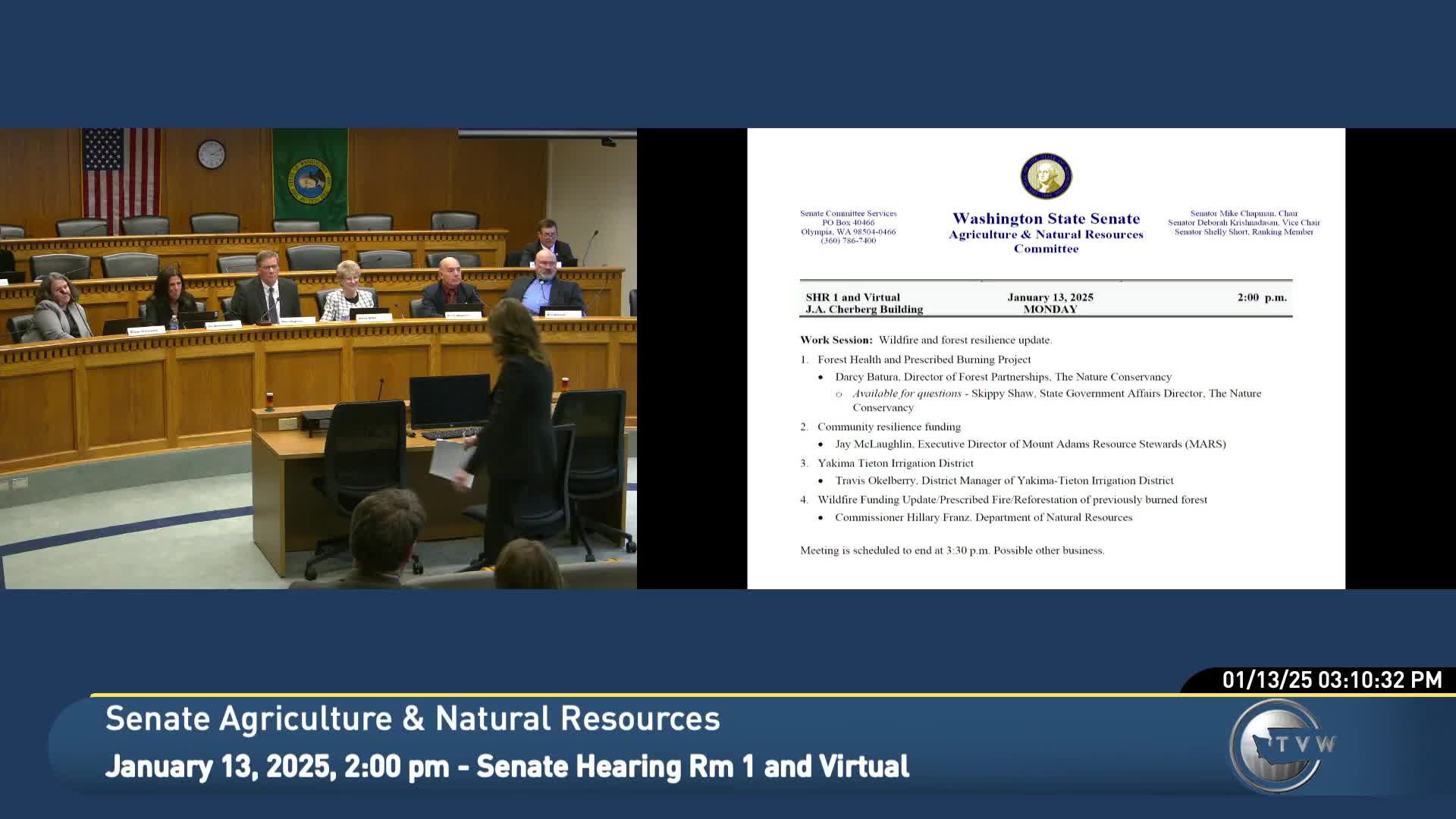Washington DNR commissioner urges continued investment in wildfire response, restoration and community resilience
Get AI-powered insights, summaries, and transcripts
Subscribe
Summary
Commissioner of Public Lands Hilary Franz briefed the committee on statewide wildfire trends, DNR accomplishments since 2017 and program needs, including detection, air resources, prescribed‑fire acceleration and community resilience investments.
Hilary Franz, Washington State commissioner of public lands, told the Senate Agriculture, Water, Natural Resources & Parks Committee on Jan. 13 that extreme wildfires have increased in frequency and magnitude and urged continued investment in three pillars: wildfire response, forest and rangeland restoration, and community resilience.
Franz said Washington had four consecutive years of keeping 95% of fires below 10 acres and credited investments since 2017, including the passage of HB 1168, House Bill 1496 and prescribed‑fire statutes and policy work. She described technological and operational priorities — wider deployment of advanced detection cameras, exclusive‑use aviation, night‑capable aircraft, drone ignition and emerging tools such as robotic BurnBots — and urged continued investment in firefighters’ pay, mental health and equipment.
Restoration and scale: Franz told the committee that DNR and partners have restored roughly 940,000 acres in central and eastern Washington (she said the agency expects to achieve the 20‑year forest health plan in 10 years) and that the program must finish work across approximately 1,250,000 acres. She reported DNR conducted prescribed fire on 13,947 acres since 2021 and supported another 5,500 acres of prescribed fire on non‑DNR lands. Franz also urged attention to west‑side forest assessments and noted that restoration is not a one‑time effort.
Community resilience: Franz highlighted the Wildfire Ready Neighbors program and other home‑hardening efforts. She said 181 communities are engaged in the program, with roughly 6,800 homes signed up, 4,400 home assessments completed and 2,152 acres treated. She urged legislature and local governments to invest in community programs, conservation districts and volunteer fire districts.
Policy recommendations and next steps: Franz recommended continued funding for early detection technologies, exclusive‑use aviation, expansion of the certified burn manager program and statutory solutions to reduce liability barriers to prescribed fire. She said DNR and partners should update the state smoke‑management plan to reflect post‑2021 learnings and continue building interdisciplinary modeling and evacuation planning tools to address wildland‑urban interface complexity.
Franz framed the work as a statewide responsibility across tribal, federal, state and local partners and urged legislators to maintain and increase investments to preserve gains and reduce the likelihood of catastrophic wildfires.
The commissioner’s remarks included statewide statistics, program tallies and operational priorities and followed several local presentations on restoration, community forestry and infrastructure damage.
